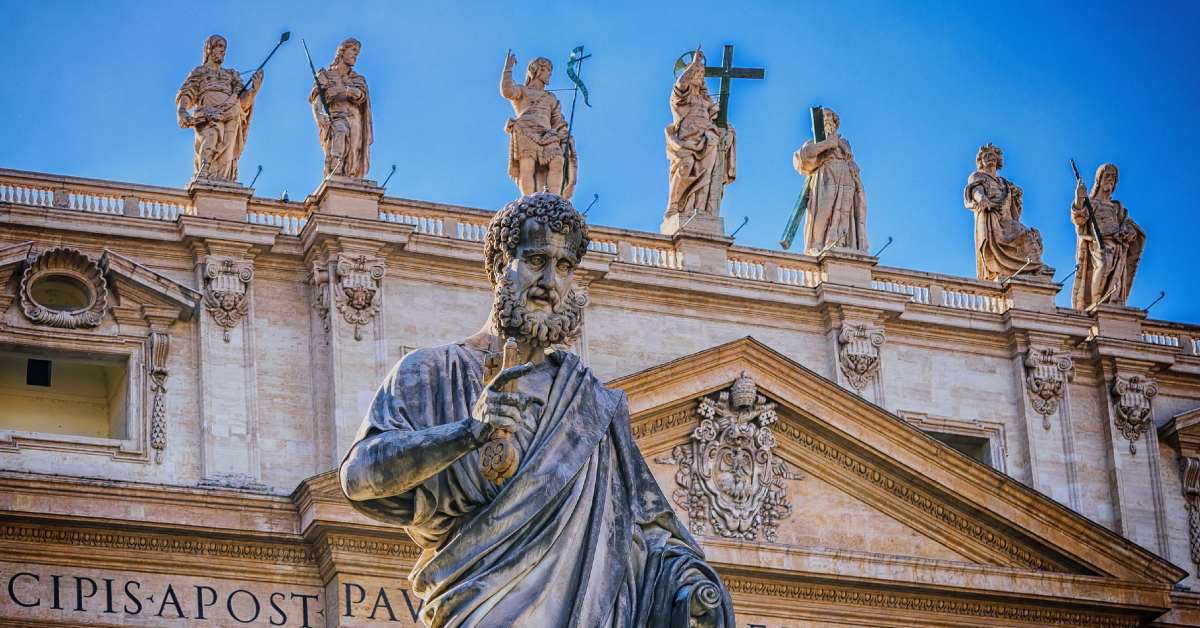ChurchGrowth.Net is proud to announce that Faithful-Journey.info has joined our family. Faithful Journey was an online resource dedicated to celebrating the Acts of the Apostles in early church history. This represents church growth at its earliest stages.
The Acts of the Apostles is unique in the New Testament as it provides an account of the apostles’ ministry, particularly that of Peter and Paul. In addition to describing the early church and its missionary journeys, the book stands out for its numerous speeches, which make up approximately one-third of the total text.
Various figures, including Peter, John, Philip, Paul, Barnabas, and thousands of others, witnessed their newfound faith in Christ through personal testimonies, preaching, and defense before authorities, boldly and courageously sharing the story with groups of all sizes. However, they also endured persecution from both Jews and Gentiles, resulting in imprisonment, beatings, riots, and plots against their lives, and other events that hindered church growth in the early years.
The church did not grow solely through human power or enthusiasm; rather, the disciples were empowered by the Holy Spirit, who was the promised Comforter and Guide sent after Jesus ascended to heaven.
Who Wrote The Acts Of The Apostles?
Four early Christian leaders wrote accounts of the ministry, death and resurrection of Jesus. Only one of them, however, continued the story into the events of the decades to come.
From the earliest times, Luke the evangelist has been identified as its writer. He was the only Gentile writer of the New Testament. We know very little about Luke. He was a doctor and one of Paul’s most valued friends on his many travels. But he also was a historian, theologian and diplomat.
When Was Acts Of The Apostles Written?
The exact date of when the Acts of the Apostles was written is uncertain, but most scholars believe it was written between 80-90 AD, although some suggest it could have been written as early as the 60s AD. The author of the book is traditionally believed to be Luke, a companion of the apostle Paul.
The Acts of the Apostles Summarized
The Acts of the Apostles is the fifth book of the New Testament, which describes the history of the early Christian church after the death and resurrection of Jesus Christ.
The book begins with Jesus’ ascension to heaven and the disciples waiting for the promised Holy Spirit. On the day of Pentecost, the Holy Spirit comes upon them, and they begin preaching to people from all over the world who are in Jerusalem at the time.
The apostles perform many miracles, and the number of believers grows rapidly. However, they also face persecution from the Jewish authorities, and some of the apostles are arrested.
The book then focuses on the life and teachings of the apostle Peter, who becomes a leader of the Christian community in Jerusalem, preaching to both Jews and Gentiles.
The book also introduces the apostle Paul, who was originally a persecutor of Christians but later converts to Christianity and becomes a great missionary. He travels extensively, preaching the gospel and establishing many churches, some of which would later branch out to other denominations, such as Greek Orthodox.
The book describes the council of Jerusalem, where the apostles and elders gather to discuss the issue of whether Gentile converts should be required to follow Jewish customs. They decide that Gentile believers do not need to follow Jewish customs, but should avoid certain practices that would offend Jewish believers.
The Acts of the Apostles ends with Paul being imprisoned in Rome and continuing to preach the gospel from prison. The book emphasizes the importance of the Holy Spirit in guiding the early Christian church and the need for believers to remain faithful in the face of persecution and adversity.
Key Themes in the Acts of the Apostles
There are several important themes and messages that can be taken from the Acts of the Apostles. Here are some of them:
- The spread of the Gospel: The Acts of the Apostles shows how the early Christians spread the message of the Gospel throughout the Roman Empire. The apostles traveled far and wide to share the good news of Jesus Christ, often facing persecution and opposition.
- The power of the Holy Spirit: The book emphasizes the importance of the Holy Spirit in guiding and empowering the early Christian church. The Holy Spirit is portrayed as the source of wisdom, strength, and boldness for the apostles and believers.
- The inclusion of Gentiles: The Acts of the Apostles shows how the early Christian church struggled with the issue of whether Gentile converts should be required to follow Jewish customs. The book ultimately concludes that Gentile believers do not need to follow Jewish customs but should avoid certain practices that would offend Jewish believers.
- The importance of faith: The Acts of the Apostles highlights the importance of faith in Jesus Christ as the key to salvation. The book shows how many people came to faith through the preaching and witness of the apostles.
- The sovereignty of God: The book also emphasizes the sovereignty of God in directing the course of human history. God is portrayed as working through the apostles and believers to accomplish His purposes, despite the opposition and persecution they face.
Finally, we all know about the importance of prayer in church growth. Here’s a passage from Acts to contemplate:
Jesus told his apostles, “You shall receive power when the Holy Spirit has come upon you; and you shall be witnesses to me in Jerusalem, and in all Judea and Samaria, and to the end of the earth.”
(Acts 1:8)


1 thought on “The Acts of the Apostles in Early Church History”